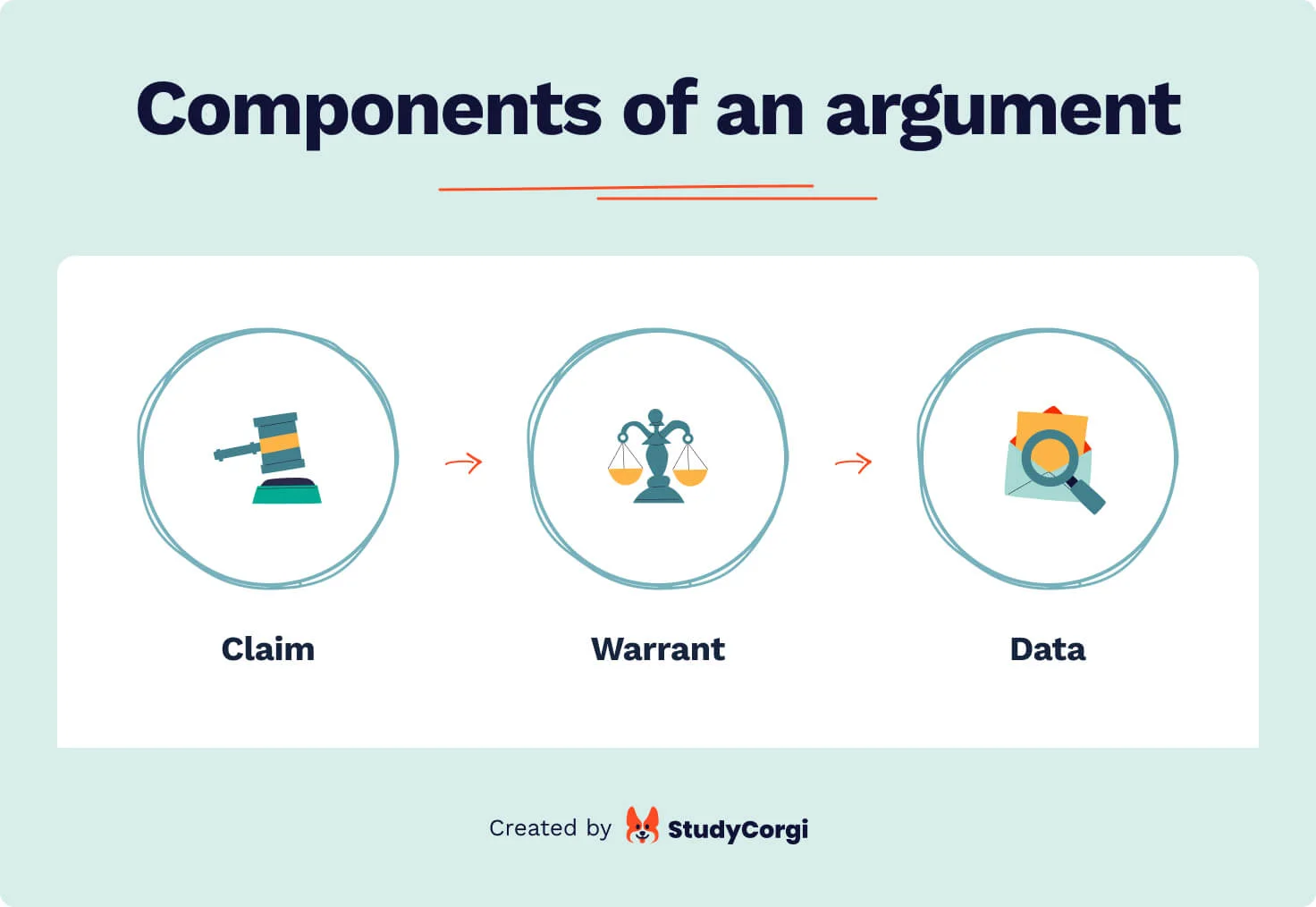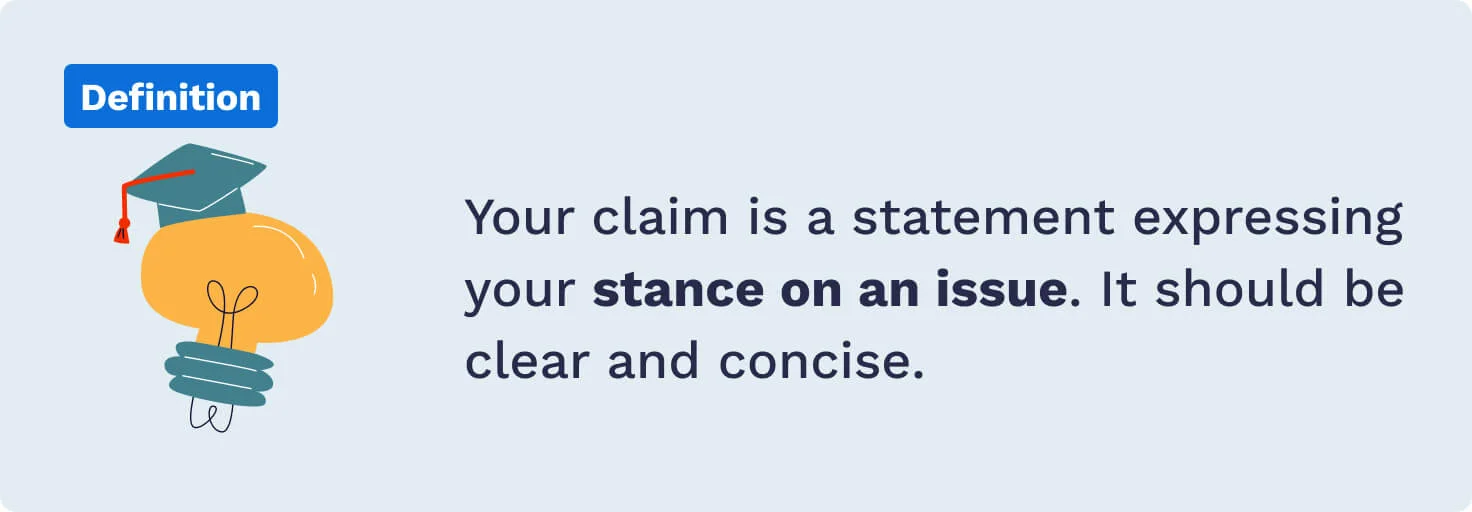✨ How to Use Our Debate Argument Generator
- Enter the topic of your debate.
- Specify your stance on the topic. You can be either for or against it.
- Choose whether you need to react to your opponent’s speech. If you choose “yes,” an empty field will appear where you can paste your opponent’s main arguments.
- Press “Generate.”
🔥 Benefits of Our Argument Generator for Debates
Our generator is a standout among similar tools you can find online. Don’t believe us? See for yourself:
🚀 Tips for Choosing a Debate Generator AI
There are plenty of debate argument generators online, but not all can create solid arguments. In fact, there are many requirements they may not fit.
A good debate generator must be:
- AI-powered, as it will be able to generate strong arguments.
- Easy to use in a way that doesn’t require long and confusing instructions.
- Customizable so that the resulting speech will be just what you need.
- Bolstered by additional helpful tips on how to make a great argument.
Our debate generator fulfills all of these parameters. We’ve also made our AI debate generator free, which is rare among good apps. It all comes down to our tool being the best you can find online. Try it now and see for yourself!
📢 What Is a Debate Argument?
A debate argument is a justification for your position. To win a debate, you must establish several such justifications to prove your point. The chances of winning a debate increase with each solid argument you make and each refutation you state towards your opponent.
Elements of a Debate Argument
Every debate argument has three core parts:
- The claim is the main point of the argument.
- The warrant is the logical reasoning of why your claim is valid.
- The data includes all the facts and evidence you’ve used to support the warrant.

All of these parts are vital to build a strong argument. If one of them is missing, the argument becomes fallacious. For example, if you claim that humans can fly like birds without providing actual evidence and logically explaining your point, nobody will side with you. This rule can be applied to any debate on any topic.
What Makes a Good Debate Argument?
When you want to win a dispute, you need convincing arguments. But what exactly characterizes a well-made claim?
Check out the following qualities and make sure your proof has them:
- Clear. If your point is presented straightforwardly, more people will grasp it and side with you.
- Fair. All sides of a debate have to be heard. That’s why you should always give a fair answer to your adversary.
- Specific. Meaningless and general statements blur your explanations and make them weaker.
- Based on facts. People need to see the actual reasons behind your assertions.
- Supported by evidence. Prove your audience that your argumentation can be applied in the real world.
- Devoid of fallacies. If your evidence is built on outdated or false information, you will be removed from the debate.
🗣️ How to Build an Argument in Debates
To create a great argument, try a handy method called the 7 Cs. Here’s how it’s done:
Step 1. Consider the situation.
Think about every possible debate scenario. Answer the questions: what idea are you arguing, and what is your aim? What supporting evidence are you going to use? Who is your objector?
Step 2. Clarify your thinking.
Explore the advantages and limitations of each side of the problem. If possible, conduct some preliminary research. You can also rely on your prior familiarity with the topic when picking your debate position. Just ensure the 100% credibility of your data.
Step 3. Construct a claim.
Formulate a brief statement with your stance and the primary justification for it. You may declare that:
- You believe or don’t believe that something is true.
- You assign a certain value to something.
- You assume something should or shouldn’t be done.

Step 4. Collect evidence.
Ensure that your claim is supported by enough proof. This includes:
- Facts and statistics,
- Real-life situations,
- Personal anecdotes.
Step 5. Consider key objections.
Try to predict the opposing arguments you may hear during the debate. What arguments might people make to disprove your viewpoint? What significant issues may they perceive within your statement?
Step 6. Craft your arguments.
Make a strong argument for your point of view using your statement and the supporting data you have acquired. Try to address any substantial concerns that might emerge during a discussion.
Step 7. Confirm your claim.
Conclude your arguments by restating the main idea you were conveying. Try to make the final statement catchy so that it sticks with your listeners after your speech.
Have problems with any of these recommendations? Need some additional inspiration? Try our debate argument generator!
📚 Examples of Good and Bad Arguments
Finally, we want to show you two samples of good and bad arguments. We will analyze them to help you recognize their strengths and weaknesses.
Here’s the first argument:
97% of scientists say that human activity is the reason of global warming. Thus, it is likely that people are contributing to global warming.
Although this argument has a claim and uses statistical data as proof, it still needs improvement. You see, the warrant used to support the claim doesn’t prove it. It just confirms that a lot of influential people support this idea.
A better argument would be:
97% of scientists state that human activity is the paramount driver of global warming. In particular, the data illustrates that burning fossil fuels like coal, oil, and gas traps heat and warms the Earth. Thus, it is likely that humans are causing global warming.
As you can see, the claim and warrant alone can’t win the argument without proper corroboration. That’s what distinguishes a good argument from a bad one.
Let’s see the second example:
Artificial intelligence can carry out simple tasks, so it will soon take all jobs from us.
This argument is supported by evidence. However, the evidence isn’t solid enough to prove the point. AI can indeed do certain things, but that doesn’t mean it’s about to take all our jobs.
A more powerful argument can look like this:
Artificial intelligence can carry out simple tasks, so we can delegate routine objectives to AI, like responding to emails or filling out simple documents.
Our debate argument generator can provide you with even more examples on various topics. It’s free and unlimited, and it will help you find new and gripping claims.
Now, you know how to craft terrific arguments. Our brilliant debate generator’s AI will make your arguments even sharper. Try it now and have fun!
We also recommend checking out our transition sentence maker and hook generator for essays.
Updated: